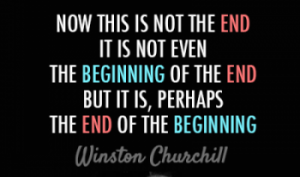In a series of posts giving a frank account of experiences on the NHS frontline, Sally Williams hears from Dr Jonathan Bennett, Honorary Professor of Respiratory Sciences, University of Leicester, Respiratory Consultant at Glenfield Hospital and Chair of the British Thoracic Society. This is what he said on 12 May 2020.
There is a huge amount of work underway to get NHS services running again. It seems to be underpinned by a belief that the pandemic is sort of over, but it’s not. The first surge may be over, but to think that COVID-19 is over is a dangerous concept. Even if we don’t have a second or third surge, COVID-19 will be endemic in the population. We are probably only at the end of the beginning.
Information overload
Diktats are coming from national organisations eager to resume full NHS services in a ‘new world’ that includes COVID-19. Clinical teams are grappling with how to do this operationally. For respiratory services, clinicians are developing guidance on how to restart cancer services and provide breathing tests on an ongoing basis. Staff are trying their best to work through these dilemmas, but it is really difficult to know how to do this. We have no idea of the prevalence of the virus in the general community. We will have people coming into the hospital with COVID-19 symptoms or who are asymptomatic (i.e. don’t have symptoms) but still have COVID-19.
The uncertainty over the extent of COVID-19 in the population poses challenges, conceptually and practically, in how we configure services. Respiratory, thoracic surgery and intensive care will be more affected than some other specialties by these challenges, due to the procedures and tests we do. We also haven’t had a rest and are still responding to patients with COVID-19 who are critically unwell.
We’re deliberating how to manage this new reality in terms of conducting respiratory tests that are aerosol generating (which create a risk of transmission through droplets of infected virus in the air). There are also implications for surgery. If you perform a heart or lung operation on a patient who might have COVID-19, they’re likely to have a less positive outcome. There’s also the risk that they transmit infection to healthcare workers and other inpatients during their admission.
I’m being bombarded with information and feel a sense of overload. I’m the lead for the regional lung and mesothelioma (a type of cancer that’s usually linked to asbestos exposure) Expert Clinical Advisory Group. I’m asked what the backlog is for East Midlands, what has changed, what outcomes these patients are having, and how we should move forward. They’re great questions, for which no one (yet) knows the answers.
All we can give are our best guesses. It has to be an iterative process, where we start providing some services, see how it works and make refinements according to the outcomes we’re getting. This type of process relies on having the right infrastructure to measure, analyse and adapt in a continuous cycle. Unfortunately, I don’t think we have that infrastructure locally, regionally or nationally to deliver this optimally.
We can learn to some extent from other countries that are further down the road in terms of COVID-19, but they tend to have very different healthcare systems, disease prevalence and approaches to tracking and tracing. I haven’t heard much about how other countries have restarted their everyday health services.
Coordinating effort
Nationally, in my role as chair of the British Thoracic Society (BTS), I am working with colleagues to align the different streams of information coming from BTS, the Royal College of Physicians, NHS bodies, and the New and Emerging Respiratory Virus Threats Advisory Group (NERVTAG). I also feed up what’s happening locally to provide ground level information.
Locally, I feed to colleagues the national information, to help local teams and ensure that we aren’t duplicating effort. I’m surrounded by good, sensible clinicians at the hospital, who are trying to develop simple strategies in response.
I also help to promulgate national information to BTS members via the webpages and email, to ensure they feel supported and are signposted to information that can help them.
Long-term change
Prior to the pandemic, the way people interacted with hospitals wasn’t quite right, in terms of the numbers attending urgent and emergency care. The volume of patients coming through felt unmanageable. Only time will tell whether COVID-19 has reset the way we all think about using NHS resources.
The NHS response to COVID-19 has given clinical leadership greater prominence than it had previously. Before the pandemic, there was often a complex set of hoops that teams on the frontline had to jump through in order to pitch ideas to decision-makers. Locally, those barriers have broken down as we’ve had to adapt at pace to respond to COVID-19. And we’ve shown that NHS staff are very adaptable and continue to be so on a daily and weekly basis.
For a long time, I think there was a subtle undermining of morale for NHS staff. Now we’re branded heroes. I’m not sure that we are any more heroic than all those other key workers, however it has been great to know that the public still appreciates the principles and practices of the NHS and its staff. With the fragility of the economy, we are incredibly lucky, in that we have interesting jobs and incomes. Many others may not be so fortunate in the months ahead.
Ultimately, NHS staff are just trying to do their best for patients. In terms of next steps, it means striving to get our care systems right for a COVID-19 endemic world.
As told to Sally Williams
Image: celebquote.com

